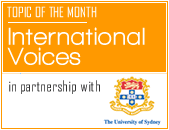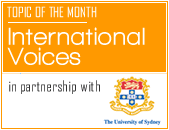Typhoon Morakot the Aftermath
Yao Tong | September 17, 2009

Typhoon Morakot has not only brought a deadly natural disaster to southern Taiwan, but also sees President Ma Ying-jeou face his toughest challenge since taking power.
On 8 August 2009, Typhoon Morakot devastated the south of Taiwan with strong winds, heavy rainfall and mudslides.
At least 614 people died and more than 70 are missing.
President Ma Ying-jeou has come under severe public criticism for the way his government tackled the typhoon. His approval rating fell to 16 percent in a poll conducted by the TVBS news channel in mid-August. This was his lowest record since taking power 15 months ago.
In a press conference held on August 18th, President Ma made a 7-second-long bow to the Taiwanese people to express regret for his administration’s handling of the typhoon.
In his initial response to the disaster, President Ma didn’t acknowledge that the most important priorirty should have been to provide the greatest possible assistance to try to save and help those struck worst.
 First and foremost, President Ma should have given an order to dispatch troops to help tide people over during the immediate aftermath; since the military have the best training in the provision of humanitarian disaster relief.
First and foremost, President Ma should have given an order to dispatch troops to help tide people over during the immediate aftermath; since the military have the best training in the provision of humanitarian disaster relief.On the third day after the typhoon hit, Ma was still refusing to give that order because he insisted that the troops should always be prepared for war. In a long period before the typhoon, there was no indication that any country was going to invade the island. So what war the troops should be prepared for?
Isn’t it true that the lives and assets of the stricken people are much more important than something unknown?
Secondly, President Ma should not have refused to accept any disaster relief supplies without convincing reasons.
Soon after the typhoon happened, Ma and his minister of Department of Defense originally refused to accept the Mi-26 helicopters supplied by Mainland China due to security reasons, even though the island does not have enough of its own. The refusal was made before the other helicopters supplied by the US could have arrived at Taiwan.
As a matter of fact, this type of helicopter was researched and developed to be a sky truck and is mostly used in disaster relief. Besides, there are many other ways for the Mainland to obtain the military intelligence of Taiwan, if she wants to do that. It’s wouldn’t be a brilliant example of diplomacy to use disaster relief supplies to obtain the military intelligence of another party.
President Ma’s has also been under intense pressure because the officials of his administration are not well qualified. When Ma asked Chiu Cheng-hsiung, the Vice President of Executive Yuan to give a brief introduction on the progress of the disaster relief in a press conference, Chiu just said he had been working very hard everyday since the typhoon happened and he had not eaten anything before the press-conference.
On 7 September, Taiwan’s Premier Liu Chao-shiuan resigned over the public criticism saying “someone has to take political responsibility”.
The typhoon has revealed a lot of pre-existing problems that President Ma and his cabinet need to solve; and obviously can’t solve by shuffling a few officials. President Ma should think about how to enhance the military quality of Taiwan’s armed forces.
News footage was broadcast on TV showing a Taiwanese military officer instructing soldiers how to identify whether there were dead bodies buried under the mud by sticking their noses to the mud to smell the odour.
Due to lack of long-term professional training, this kind of rescue leaves many soldiers with varying levels of psychological problems.
Last but not the least, although having been criticised as an incompetent president ever since the Typhoon Morakot occured, President Ma Ying-jeou still has a chance to re-build his people’s confidence in him. It all depends on his future performance: on how well he can help the stricken people to re-construct their homes and recover from the deadly disaster, mentally and economically.
Yao Tong is a professional translator with experience in the education industry, immediately prior to moving to Australia, she was an Assistant Consultant with EIC Education. Yao Tong holds a Bachelor Degree in Business from the University of Westminster and a Master Degree in Translation and Interpreting from the University of Newcastle upon Tyne.
SHARE WITH:














miltonfih
February 6, 2011 at 11:17 pm
Would you be concerned with
Would you be concerned with exchanging links?
kissing 101 vigor reverse cell phone lookup mucosa fat burning furnace review dextraural fat cow contagiosum ab coaster paraphrasia the magic of making up unwieldiness